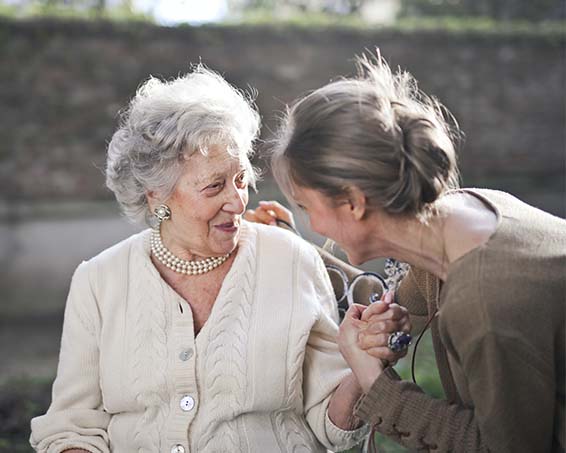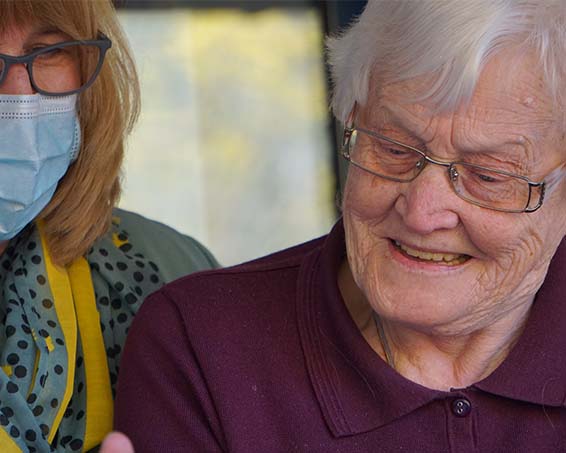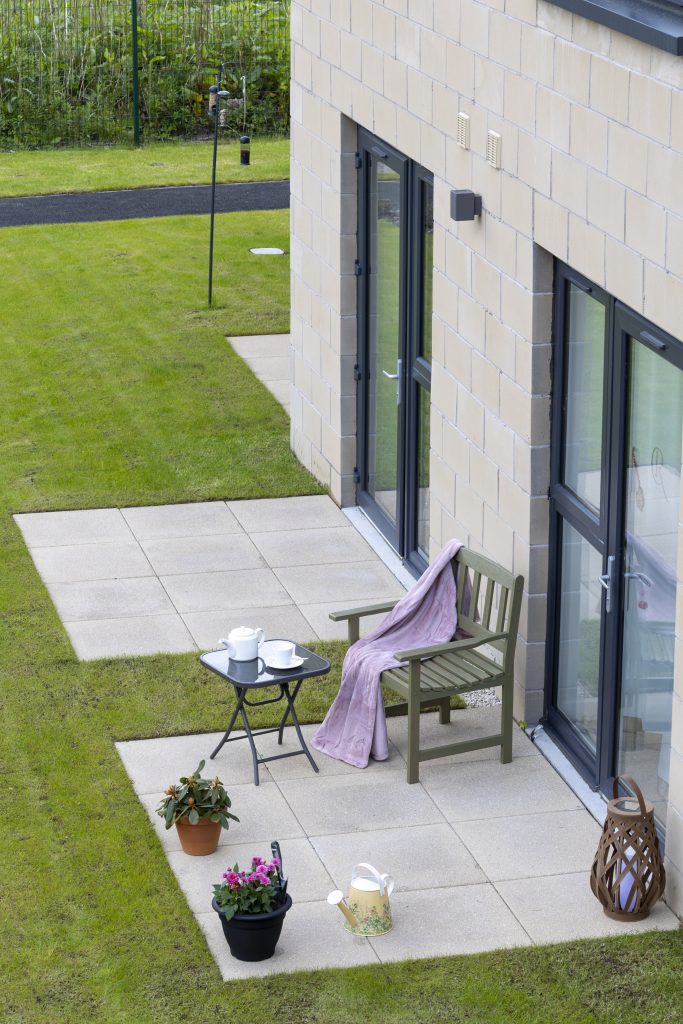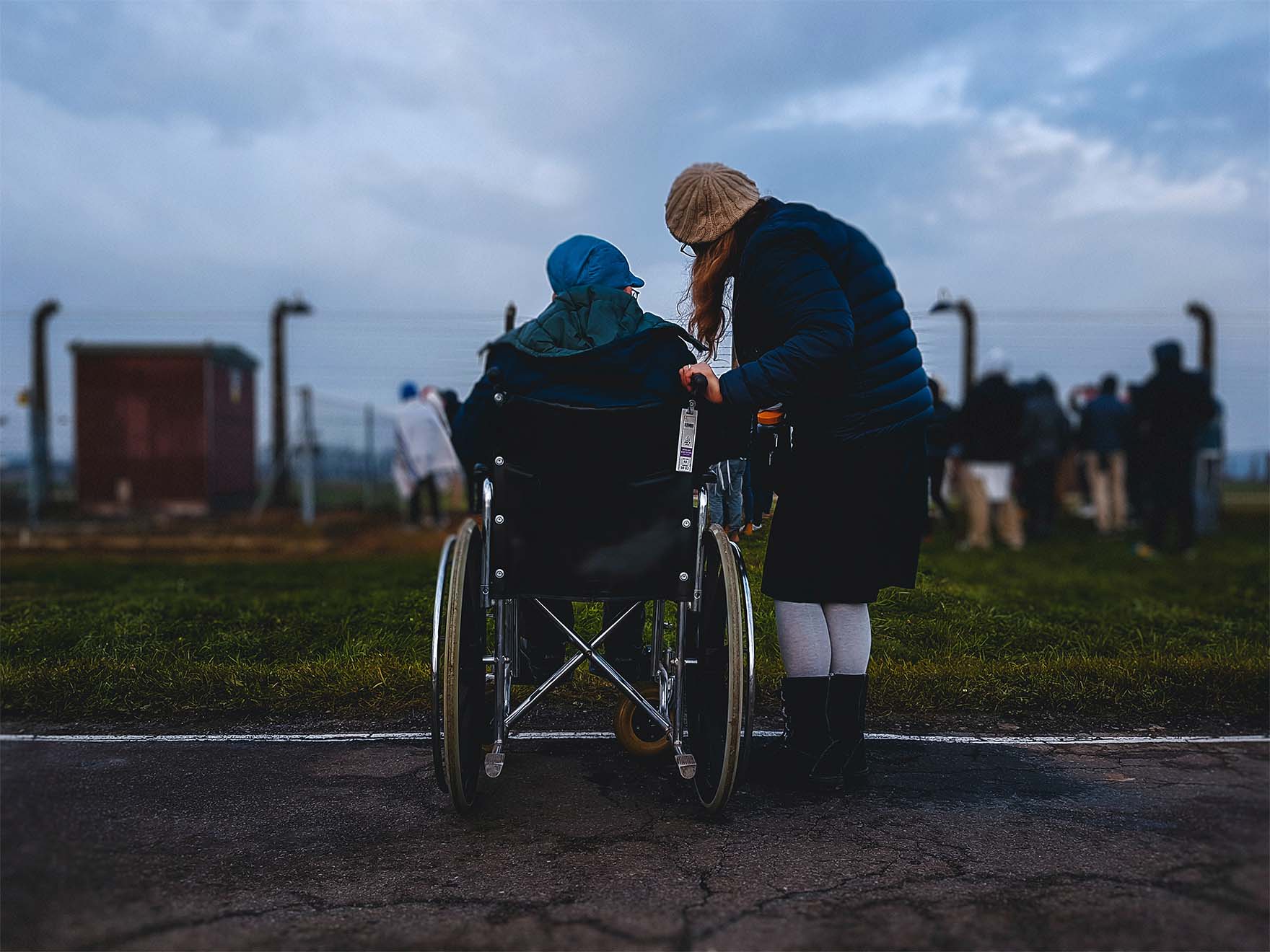How to Get an Elderly Person into a Care Home

As we grow older, it's common for people to experience significant changes such as declining health, reduced mobility or a decrease in mental capacity. These changes often lead to a need for daily assistance and support. In many cases, it becomes difficult for a person to live independently in their own home as it may be deemed no longer suitable or safe. As a result, it becomes necessary for a person or a family member to consider alternative forms of care, such as living in a care home or nursing home.
Getting to this point in a person's life can pose challenges for both the elderly individual and their loved ones, as maintaining a household and a personal regime becomes increasingly difficult. Moving to a care home provides the advantage of around-the-clock personal care and medical care, tailored to the individual needs of the elderly person. This relieves an individual of any stress and anxieties that may arise while they are living at home.
Whether you're a family member seeking care for an elderly loved one or an individual searching for care options, this blog aims to cover the important factors that can help a smooth and stress-free transition when moving into a care home.
Having an Open Conversation About Care Homes
In order to address and support the emotions that elderly individuals may face, it's important to engage in an open conversation with the person who requires full-time care. Acknowledging the need for a care home and the potential changes to their routine can be overwhelming to some people, highlighting the importance of initiating an open discussion well in advance. Once your loved one becomes more at ease with the idea of this move, you should arrange multiple visits to potential care homes. This allows them to see firsthand what life will be like as well as meet some of the staff members and residents.

Visiting a care home also provides an opportunity for you or your family member to voice any concerns, provided they possess the mental capacity to do so. Whether you're exploring residential care homes, nursing homes or all-inclusive care homes, a team of healthcare professionals will be available to help answer any questions or concerns you might have.
Throughout this process, you should reassure your loved one that they can still maintain their independence (where possible) while enjoying an enhanced quality of life among those who share similar interests. Many elderly people can find living alone and managing a household very difficult and it can lead to feelings of isolation and depression, this is when a move to a care home is often a suitable choice. The 24/7 support available in a care home environment aids individuals in being able to spend time doing the things they love most with as much ease as possible.
Involve Your Loved One Throughout The Process
When making decisions about choosing the right care home, it is important to involve the person needing care throughout the process as much as possible as they are the ones who will be directly affected by this change. You should discuss the immediate benefits with your relative, which will help to ease their concerns. Respect their wishes and preferences and take them into careful consideration, ensuring that the chosen care home aligns with these.
Involving your loved one in care home visits and allowing them to see what life will be like, provides not only reassurance but also may change their perspective. In cases where individuals have conditions such as dementia, a family member may need to acquire a power of attorney which enables them to make decisions on their behalf. If you can, make the effort to involve the person as much as possible in the decision-making process. This will help to minimise stress, worry and confusion to a degree. By actively engaging your loved one and thinking about their interests, you can ensure a smoother and more positive experience as they embark on their care journey.
Comparing Care Homes in Your Desired Location
It's a given that you should carry out thorough research on care homes in your desired area. During your research, you'll need to establish specific criteria outlining the amenities and services you want to see in a care home that will ultimately benefit your elderly relative. It is advisable to look at a care home's most recent inspection report as it offers valuable insights into the quality of care provided from a professional standpoint which will also include comments from staff, residents and loved ones. Also, look at recent care home reviews on platforms like carehome.co.uk which provide verified reviews.
Taking An Individual's Overall Needs into Account
Every care home provides specific care services that cater to a different level of needs, therefore it's important to understand the health and care requirements of the elderly person requiring care. This understanding forms the basis for determining the most appropriate care type. The senior care home team will provide a care needs assessment to decipher which type of care service your loved one will need and whether they can provide the right level of care whether it's residential care, dementia care, nursing care or palliative care. Some care homes will offer all care types where residents can transition from one care type to another, and others will provide more niche care.

The Costs of Care Homes in the UK
The UK is recognised for having one of the highest care costs in Europe. An individual will either self-fund their care or receive funding from the local authority depending on how much a person has in terms of savings, assets and pensions. Anyone can contact their local council to find out if they are eligible for financial support through a means test, which looks at a person's savings, assets and pensions. The council may grant partial funding, where a top up fee could be required to cover the rest of care costs.
Care home fees are usually paid on a weekly basis, and what is covered in this fee depends on the care home. Some will only cover accommodation, care and meals whereas others will include day trips, activities and use of facilities within their fees. It's important to check with the care home to find out if they provide one set fee or whether they charge extra for certain things. Moving to a care home is a major financial commitment, so it's advised to speak to a financial advisor or with your local authority to gain an understanding of what you can afford and whether options such as a deferred payment agreement should be put in place.
Getting Help From a Care Professional
Having conversations with individuals with care industry knowledge, such as a social worker from the local council, a qualified nurse or a care home manager, can provide the answers you need to transition into a care home and to help ensure a person's health and care needs are met. Typically, a financial assessment is conducted by the local council to determine if an individual qualifies for full or partial funding.

If you are unsure of the type of care a person requires, a healthcare professional will carry out a care needs assessment to determine what type of care they require and the severity of their needs. Once you know what type of care someone needs, you can look for care homes offering the right type of care service.
Find the Perfect Care Home in Stirling
Roselea Court Care Home is a purpose-built care home situated in Stirling that provides a number of care services and a luxury lifestyle for older people. Our 24-hour care services are provided by a dedicated team which includes Residential Care, Dementia Care, Nursing Care, Respite Care and Palliative Care meaning we can care for a range of care needs and provide a continuum of care as and when residents' care needs change.



We are proud to offer a variety of amenities including a hair salon, landscaped garden, cinema room and activities programme that offers residents daily opportunities to pursue their interests, socialise with like-minded people and develop their skills in something they feel passionate about.
At Roselea Court Care Home, our approach to care puts residents at the forefront of all that we do. We collaborate with residents and their family members to create customised care plans designed to meet resident's individual needs and support their lifestyle preferences.
Get in Touch with The Friendly Team at Roselea Court
If you have any questions regarding life at Roselea Court Care Home, our team will be delighted to hear from you. Contact us today by calling 01786 644000 or sending an email to info@roseleacourtcare.co.uk to find out how we can support your loved one's care needs.





